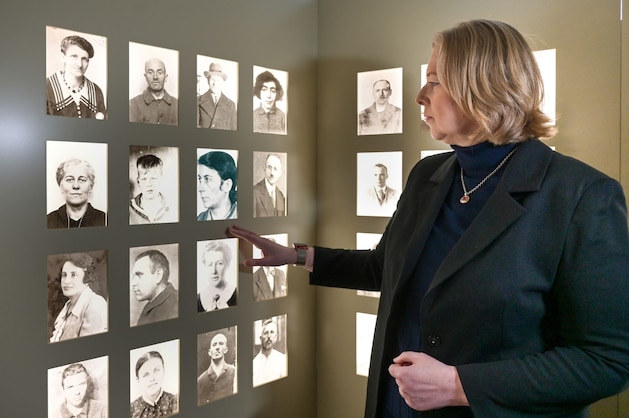At this year’s Holocaust memorial hour of the Bundestag, the queer victims of National Socialism will be remembered for the first time. Parliament President Bärbel Bas emphasizes that these should be the “focus”. But this terminology causes debate.
For the first time, President of the Bundestag Bärbel Bas wants to remember the queer victims of the Nazis at the Holocaust memorial hour this Friday – these should be “the focus” of the annual memorial hour of the Bundestag. The SPD politician is thus sending a clear signal: her CDU predecessor in office, Wolfgang Schäuble, had rejected the relevant petition for years.
While the queer community visibly expresses approval, Bas’ terminology causes some Twitter users to have an increased need to speak. The accusation: On Holocaust Remembrance Day, the focus should be primarily on Jewish victims.
Since 1996, the day of remembrance for the victims of National Socialism has been held annually on January 27 in the Bundestag. Contemporary witnesses and survivors of the Shoah will be there as guest speakers. A few years ago, Norbert Lammert (CDU), President of Parliament for many years, began to make other groups visible in addition to the Jewish victims. In 2011, the Bundestag commemorated Sinti and Roma in particular, in 2016 forced laborers and 2017 the victims of so-called euthanasia.
And this year the focus will be on the persecution of the queer community at the time of National Socialism. The parliamentary state secretary and queer commissioner of the federal government, Sven Lehmann, expresses his approval on Twitter: “Today the Bundestag commemorates the victims of the Nazi dictatorship. And for the first time, it focuses on the queer victims. This important sign ends a painful ignorance of suffering and brings the persecution of LGBTIQ* into the collective memory.
Lehmann goes on to explain that the Nazis considered homosexuality to be a “disease” damaging the so-called “national body” that had to be “eradicated”. And according to Lehmann, homosexuality was punishable under Section 175 of the Criminal Code: “1935 to 1944, tens of thousands of such judgments were passed, thousands of men were imprisoned in concentration camps and killed. Bisexual men, transgender and intersex people were also victims,” says Lehmann.
For some Twitter users, however, this causes resentment. For example, Alexander Schaumburg writes: “The federal government, in the form of State Secretary Lehmann, is using Holocaust Remembrance Day for its queer agenda. It’s not just ahistorical, it’s scandalous.” Twitter user Calamity Jane also criticizes: “That is simply putting the Holocaust into perspective and possibly also worth reporting.” The majority of users are bothered by the term “in the center”.
Another reason for the discussion is that experts have been debating for years whether Nazis persecuted women explicitly because they were lesbians. Lehmann writes that lesbian women were specifically imprisoned, tortured, abused and murdered in the Ravensbrück concentration camp. The Brandenburg Memorials Foundation denies this, however, on the grounds that according to Nazi criminal law only men were criminalized for homosexual acts and sent to concentration camps.
The sociologist and journalist Alexander Zinn told Der Spiegel that there was never a corresponding paragraph against lesbian women. And when paragraph 175 was tightened in 1935, the Nazis made a conscious decision to leave sexual acts among women unpunished, says Zinn.
Nevertheless, Bundestag President Bas sees it as scientifically proven that a woman named Mary Pünjer was persecuted because of her lesbian inclination, which was assumed by the Nazis, reports Der Spiegel. Ute Hoffman, head of the Bernburg memorial, also sees it similarly. Hoffmann says that in the case of women, the reason for imprisonment was “asocial” instead of “lesbian” – this was also the case with Mary Pünjer.
The CDU Bundestag Vice President Yvonne Magwas, meanwhile, feels that honoring the queer community on this day is the right approach: “This year’s commemoration continues the canon of honoring various groups of victims. Of course, homosexuals are a part of that.”
If you know which devices at home use how much electricity, you can make targeted savings. Our e-paper shows which devices consume how much electricity for all common household appliances, from ovens and hobs to refrigerators and washing machines to TVs and WLAN routers. There are also a number of instant power-saving tips.















